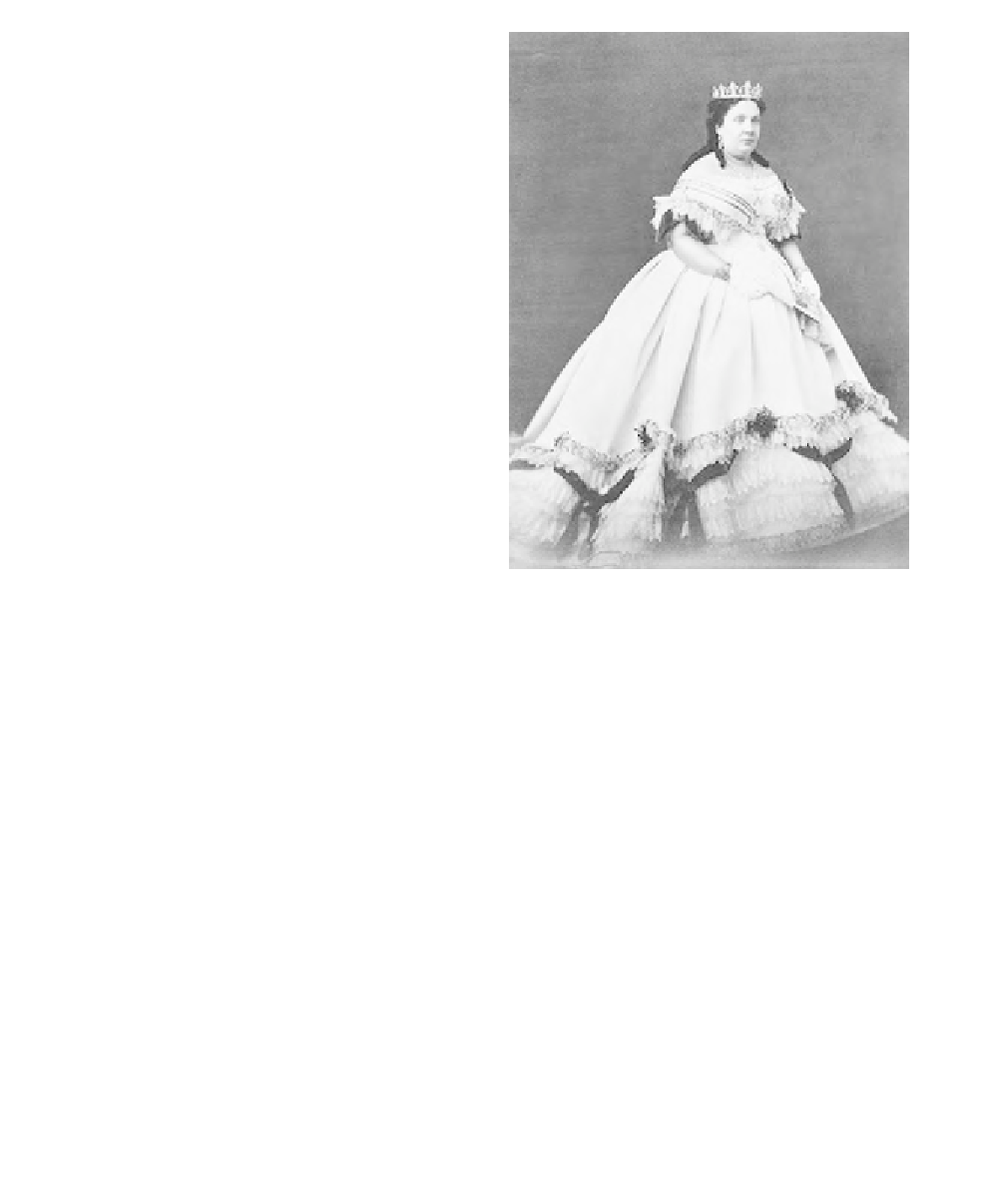Travel Reference
In-Depth Information
died with two of her sons in an epidemic
that swept the capital.
Maria Christina (María Cristina)
(1806-1878)
queen and regent of Spain
A daughter of King Francesco I of Two
Sicilies (Naples) and his wife, the infanta
Maria Isabella of Spain, Maria Christina
married her mother's brother F
ERDINAND
VII in 1829. The fourth wife of that child-
less monarch, she bore him two daughters,
of whom the eldest became Queen I
SA
-
BELLA
II. Much of the short remaining
period of her husband's reign was occupied
with political quarrels over whether a
woman could succeed to the throne. The
dispute came to a head in September 1833.
Liberals recognized Maria Christina as
regent for young Isabella, encouraged in
their support by the regent's reputation for
liberal sympathies. In the civil war that
soon broke out, these
cristinos
were opposed
by the
carlistas
(Carlists), who supported
the conservative brother of Ferdinand VII,
Don Carlos, and insisted that only a male
line of succession was legal. During the so-
called First Carlist War, not formally ended
until 1839, Maria Christina and her daugh-
ter were recognized by the new liberal gov-
ernments in Great Britain and France,
while conservative regimes throughout
Europe backed Don Carlos.
Maria Christina, confirmed in her
regency, continued to preside over Spain
until 1843, gradually alienating her former
political allies by what they perceived as
conservative tendencies. Her position was
also weakened by her secret marriage to
Agustín Fernando Muñoz, a former guards
officer, which was not publicly acknowl-
Queen Maria Christina
(Library of Congress)
edged until 1843. In 1840, after her one-
time champion, General B
ALDOMERO
E
SPARTERO
, turned against her, she was
forced to go into exile in France.
When General R
AMÓN
N
ARVÁEZ
ousted
Espartero in 1843, Maria Christina was
allowed to return to Spain, although her
daughter was now declared of age. The for-
mer regent nevertheless continued to exer-
cise influence until another political
upheaval in 1854 brought about her per-
manent banishment from Spain. She and
her husband (now bearing the title duke of
Rianzares) and their children returned to
France, where they lived out their lives and
were joined in exile by Isabella II, who was
herself deposed in 1868.

Search WWH ::

Custom Search